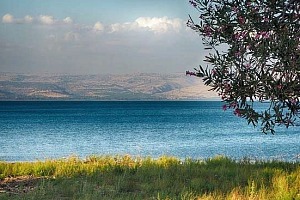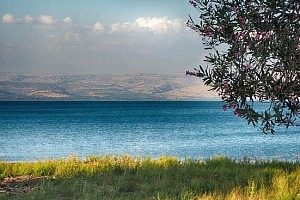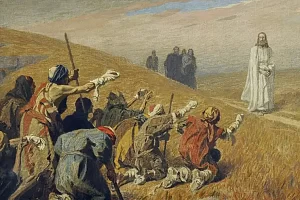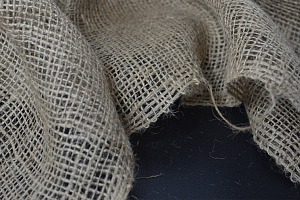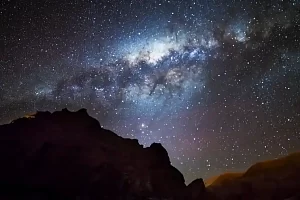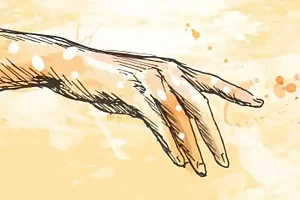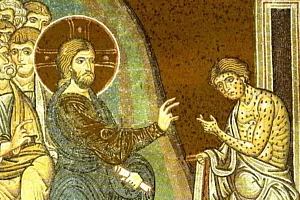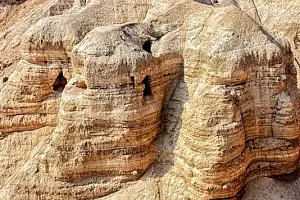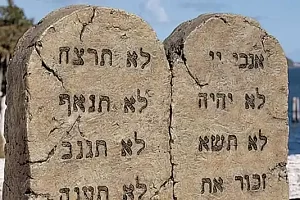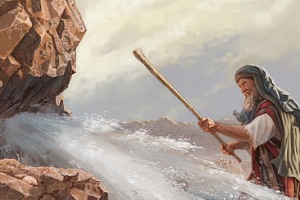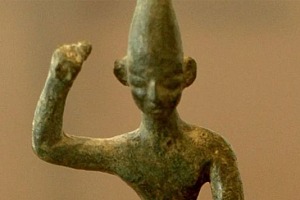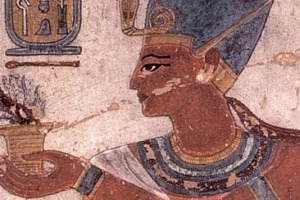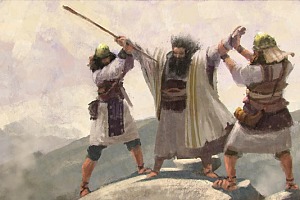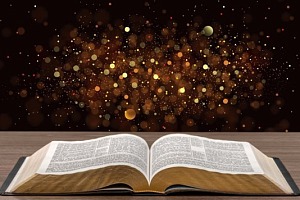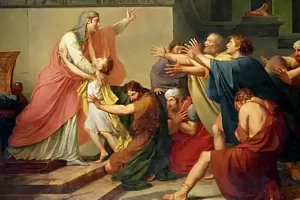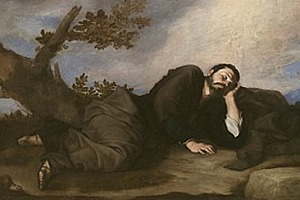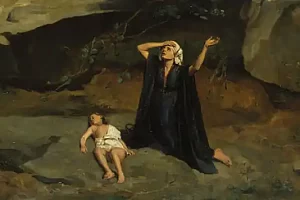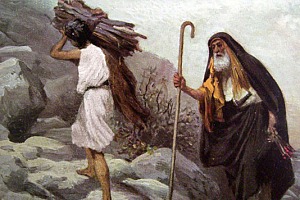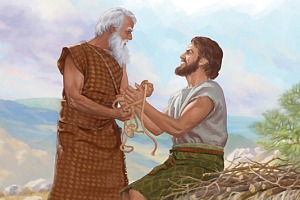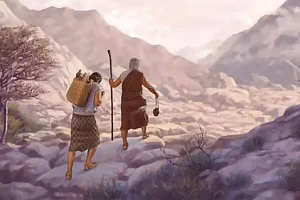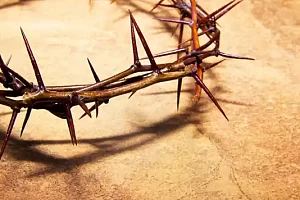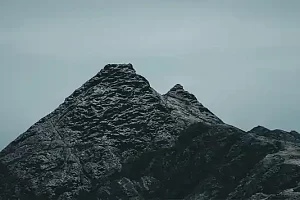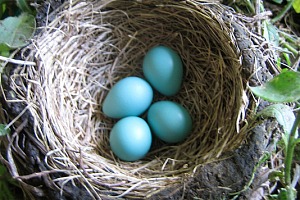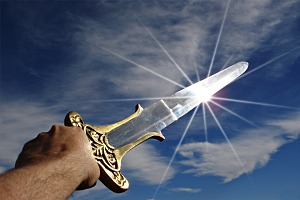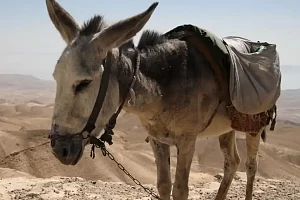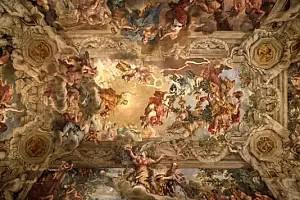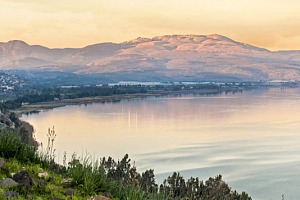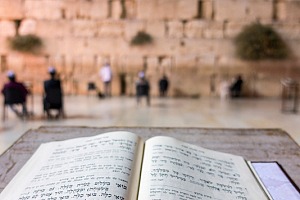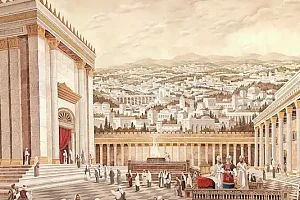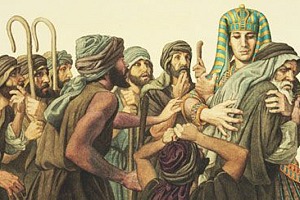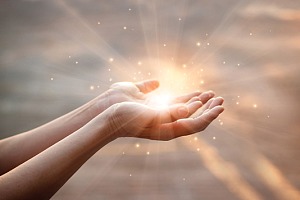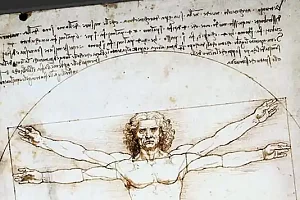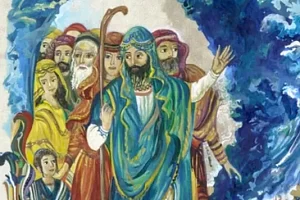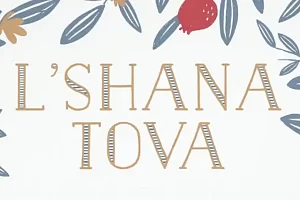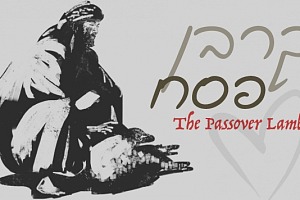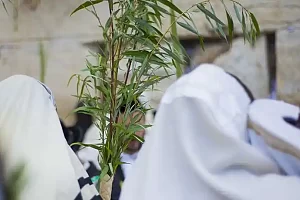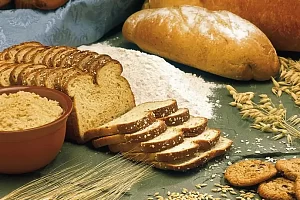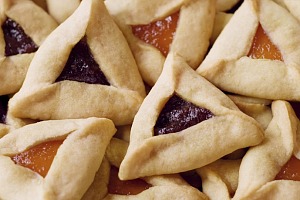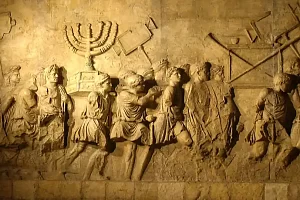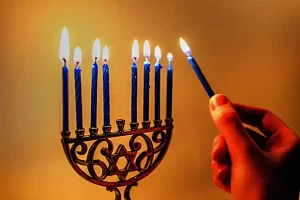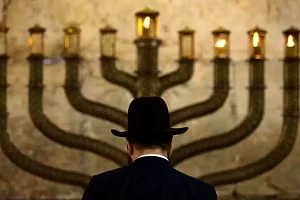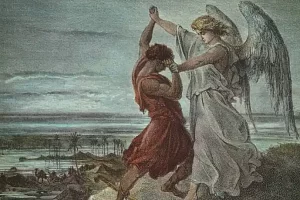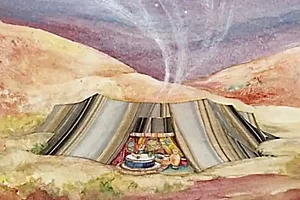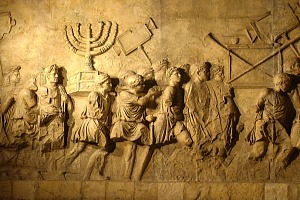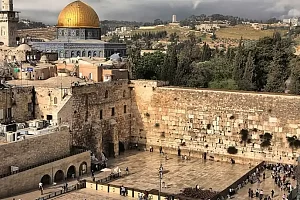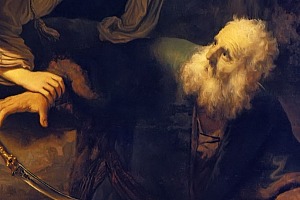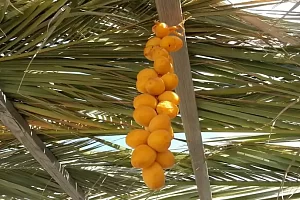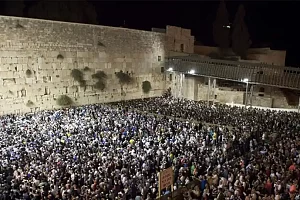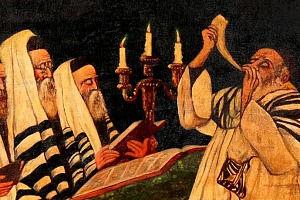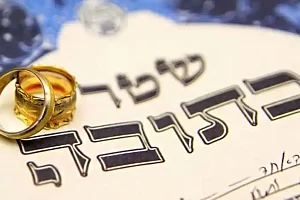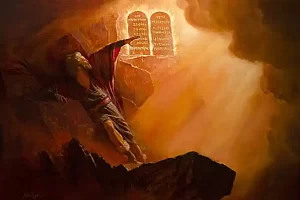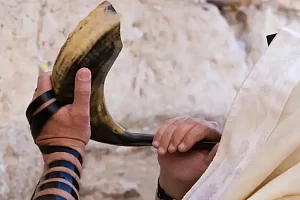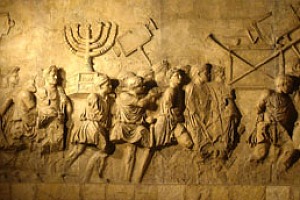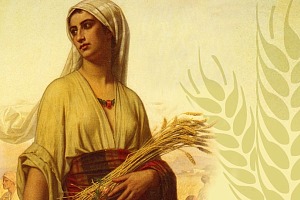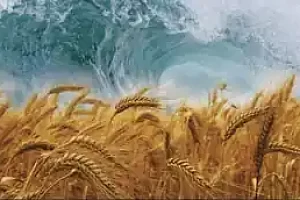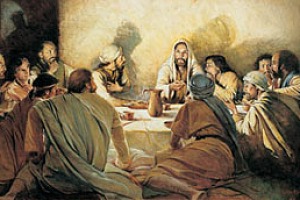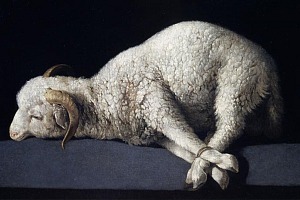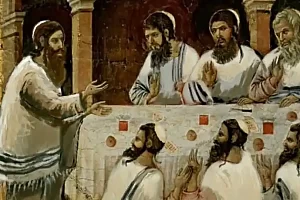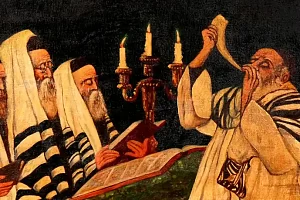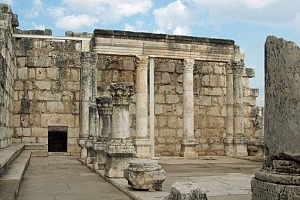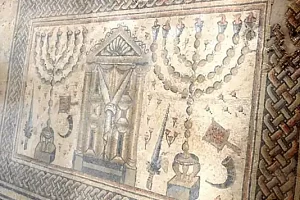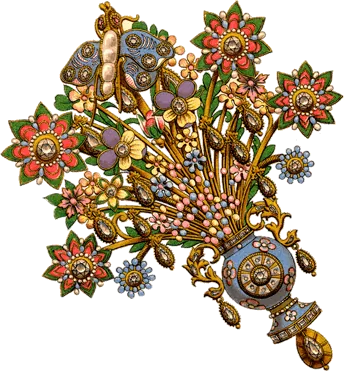The Sabbath Rest of God
When the psalmist alludes to God’s rest, there is only one ‘rest’ belonging to God mentioned in Scripture – His rest at Creation. His Shabbat is eternal and accessible to anyone willing to enter.
The Sabbath Rest of God
Parashat Shelach Shelach (“Send”) is the 37th weekly Torah portion in the annual Jewish cycle of Torah reading and covers Numbers 13:1-15:41. The title is taken from the first word of the imperative that appears at the beginning of the parasha in verse 2 when…
Part 5: Touching a Metzorah
History has chosen to look favorably upon the healed leper for his courageous display of faith. However, there is still more to the original story than what initially meets the eye.
Part 4: A Leper's Tumah
The laws of Leprosy constitute the most stringent purity protocols in response to tumah. But if contagion was not the motivation for isolation, then what was the harm in touching a leper?
Part 3: Case of a Metzorah
Miriam’s case of leprosy is fascinating on multiple levels: Regarding her affliction and healing, it is God who both strikes and heals her; and there is no mention of her purification process.
Part 2: Biblical Leprosy
In Temple times, leprosy was a severe source of impurity that necessitated the removal of the victim from three spheres of holiness: The Temple, the Levitical Camp, and the commonwealth.
Part 1: Yeshua & the Leper
Part 1 of a 5 part series covering one aspect of the levitical purity laws: A synopsis of one the most misunderstood symptoms described in the Torah and how it informs our reading of the Gospels.
Overview: Dead Sea Scrolls
What is the importance of the Dead Sea Scrolls? In this overview, we explore the most critical archaeological discovery of the 20th century and what it means for Messianic Judaism.
The Greatest Commandment
When the Pharisees asked Yeshua what the most important commandment was, he responded, “You shall love Hashem your God with all your heart, with all your soul, and with all your mind.”
Test and Contention
Why was Moses barred from entering the Promised Land? On two occasions the leadership skills of Moses are put to the test, and twice, His skills are found wanting.
Who is Like Our God? Part 2
According to the Mechilta, the Israelites encamped in front of Baal Zaphon, the last remaining idol in Egypt, in order to deceive the Egyptians into believing that their god had caused them to have the upper hand.
Who is Like Our God? Part 1
The Crossing of the Sea of Reeds marked a historic transition in the history of Israel. No longer were the Israelites subject to the land over which Pharaoh ruled. They were now God’s people, under his sole domain.
Shabbat Zachor
Shabbat Zachor (Sabbath of Remembrance) is the Shabbat that immediately precedes Purim. On this Shabbat, we conclude the weekly Torah reading with a special Maftir from Deuteronomy 25:17-19.
We Will Do & We Will Hear
What is the book of the covenant that Moses read? Clearly Moses is talking about reading the Torah. But not all of the Torah, for most of the events written in the Torah had not come to pass.
Miketz: Joseph's Goblet
In the beginning of Genesis 44, Joseph frames his brothers, accusing them of a crime that they did not commit. Joseph commands his servant to plant false evidence. But there is more to this story than what meets the eye.
Vayetze: Jacob's Dream
This week’s portion contains a very well-known story, the story of Jacob’s ladder. The sulam, meaning ladder or staircase in Hebrew, extends toward the earth and toward the heavens.
Toldot: Esau's Birthright
This week’s parasha contains the story of the birth of Jacob and Esau, twins of vastly different personalities. After they grow, Torah includes a story involving the continuity of the Covenant.
Hagar's Children
This week’s parsha introduces a very important concept within the historical narrative. Abraham takes a new wife. But who is this woman? Where did she come from?
The Sacrifice of Isaac: Part 2
The Sages depict a powerful and graphic scenario in which a willing and submissive Isaac accepts his fate: “This is as one who carries his stake for his own execution on his shoulder.”
The Sacrifice of Isaac: Part 1
A burnt-offering represents the unparalleled devotion of the worshiper, symbolically committing his entire essence, the body (what is seen), the mind (what is unseen), to the service of God.
The Fullness of Abraham
On two separate occasions, Abraham is commanded by God to set out on a journey. The ascension to Moriah represents the realization of Abraham's initial departure from Haran.
The Akedah: No Greater Love
The story of the Binding of Isaac represents the greatest story of mesirut nefesh [self-nullification to the point of death] that points the way to Messiah.
The Anatomy of Testing
The Akeidah has, for nearly 4,000 years, epitomized the understanding of what it means to serve God no matter how difficult the circumstances.
Least of the Commandments
Like Yeshua, the Sages of Israel alluded to the commandments of Torah in terms of light and heavy - the least and the greatest. Have you ever considered what constitutes a light mitzvah?
The Sword and the Tongue
Balaam derived his strength from the power of speech. With it, he came against Israel and exchanged his craft with their craft, for Israel triumphs only with the tongue.
The Error of Balaam
It is difficult to imagine how one could be gifted with a Divine revelation, and yet harbor so much distain and envy in his heart. By Balaam’s own words, he was the one that perceived God’s vision.
Mystery of the Red Heifer
How is it, that the greatest source of enmity became the remedy to death itself? Although it defies human logic, this phenomena is expressed throughout Parshat Chukat.
Divine Providence
Consider how high God is above the world! Yet if one enters the synagogue and stands behind a pillar and prays in a whisper, the Holy One, blessed be He, listens to that prayer.
Land of the Bible
Since the earliest times, geography has played a significant role in shaping the course of human history. For this reason, geography is paramount to understanding the Torah.
Unfolding Story of Atonement
If the Torah prohibits human sacrifice (Deut. 12:31), then how does the righteous death of Yeshua make perfect “those who draw near to worship?" (Heb. 10:1).
Is My Body a Temple?
Judaism has long taught that in the absence of the Holy Temple, there is always a sanctuary of sorts in our midst: “Every Jew should be a human temple."
Messiah ben Joseph: Part I
According to Scripture, the Messiah will build the Third Temple, gather the exiles of Israel, usher in an era of world peace, and spread universal knowledge of the God of Israel. How is it, then, that the Messiah could suffer and die?
Torah & Capital Punishment
How should we respond to difficult passages in the Torah? Many perceive the Law of Moses to be a strict authoritative and archaic penal code. However, the Torah itself says otherwise.
Part III: Levels of the Soul
According to Jewish hermeneutics, there are five “levels” of the soul. Or better stated, “five ‘levels’ of soul consciousness.” The first four are mentioned at creation.
Part II: In the Beginning
The Hebrew word, Bereshit, is the very first word in Scripture. The world literally means: “At the head of...” The common Latin expression, ex nihilo – “out of nothing,” is often used to describe the process of what comes next.
Part I: Body & Soul
There are many speculations and theories about the nature of soul. Where does it come from? Who created it? And where does it go? In conventional thought, the soul is the eternal essence of our being.
Song of the Lamb
As the Jewish people found themselves surrounded by Pharaoh's army, Moses addressed the nation with a prophetic statement, "Stand firm... Today you will see God's salvation!"
Tzav: What About Thoughts?
Thoughts are a sacred concept. They are private and knowable only to the beholder. Sometimes it can feel as though our thoughts are the only vestige of privacy we have left.
High Holiday Greetings
Rosh Hashanah and Yom Kippur are the two biggest days on the Jewish calendar. It is customary to send special holiday greetings to friends and loved ones...
The Ultimate Sacrifice
The Passover Lamb is arguably one of the most accessible symbols of God’s love for us; but what if we understood Korban Pesach in terms of the context already established in Leviticus 1-6?
The Great Last Day
The seventh day of Sukkot is called Hoshana Rabbah. The Book of John records that it was on the last day of Sukkot that Yeshua stood and cried out.
True Repentance
In Parshat Nitzavim, Moses warns the entire assembly of Israel that if they sin, they will go into exile, but he also predicts their future repentance & return to the Land of Israel.
What is Chametz?
With spring just around the corner, Passover is fast approaching! It’s time to start thinking about getting our homes ready for Passover!
Celebrating Purim
Purim is the most fun-filled, action-packed day of the year. It commemorates the miraculous salvation of the Jewish people from the plots of the wicked Haman.
Hanukkah & The False Messiah
When one lights a Hanukkiah, it is traditional to set it in a window so that it will be seen by others. Yeshua said to his disciples, "You are the Light of the World."
Keeping Hanukkah
As disciples of Messiah, it is appropriate for us to imitate his behavior. In John chapter 10, Yeshua goes to the Temple to celebrate the Festival of Dedication (Hanukkah).
The Story of Hanukkah
Hanukkah means Dedication. It is the story of how a small band of Jewish rebels called the Maccabees fought against an overwhelmingly powerful imperial force.
Jacob Wrestles
This is one of the most baffling passages in Scripture. Jacob, who is alone, wrestles with a man and then says, “I saw God face to face and yet my life was spared.”
Faith of Our Fathers
Consider the greatness of the Fathers. They were prophets, great prophets! God spoke to them. They heard His voice. And He wasn't ashamed to be called their God. How great are our fathers!
Yeshua & the Menorah
Seven branches - seven lights. Seven is significant. Seven is a recurring number in Scripture. It is associated with completion and perfection.
Coming of Messiah
Peter said to Yeshua, "Rabbi, it is good for us to be here. Let us put up three shelters (sukkot)—one for you, one for Moses and one for Elijah."
The Akedah
Judaism calls the story of Genesis 22 the Akedah. Seven days a week, twelve months a year, the story of the Akedah is read and prayed over in the morning prayer service.
Sukkot: Guests for Dinner
The Torah commands the Children of Israel to dwell in booths for seven days in remembrance of a time when God tabernacled with His people in the wilderness.
Yom Kippur
Yom Kippur comes just ten days after Rosh Hashanah. It is regarded as a day for doing serious business with heaven. It is a day of judgment, but it is also a day of atonement.
Riddle of Rosh Hashanah
The Torah commands us to blow the shofar on the Feast of Trumpets as a memorial, but it does not tell us what the blowing of the shofar memorializes!
Divorce & Re-Marriage
This week, in Parshat Ki Tetze, the Torah outlines the laws concerning Marriage and Divorce. The Talmud says that when a couple gets divorced, it is as if the Altar sheds tears.
A Prophet Like Moses
The most explicit Messianic prophecy found in the Torah occurs in this week's Torah portion ~ Parshat Shoftim, as Deut. 18:15 tells us that God will one day send a prophet like unto Moses.
Forty Days of Repentance
The 1st of Elul marks the beginning of a 40 day spiritual preparation called the Season of Repentance. The Season of Repentance culminates on the Day of Atonement.
Shavuot (Pentecost)
The Church Holiday most of us know only as a remembrance of Acts chapter two is actually a Biblical appointment filled with a wealth of meaning and symbolism.
Tisha B'Av
Tisha B'Av is regarded as the saddest day in the Jewish calendar and it is thus believed to be a day which is destined for tragedy.
The Scroll of Ruth
Shavuot (Pentecost) is the day when we remember that the Torah was spoken at Mount Sinai in all the languages of the world. In view of this, it is significant that the story of Ruth is read on this day.
Counting of the Omer
The counting of the Omer (Hebrew: ספירת העומר, Sefirat HaOmer) is an important verbal counting of each of the forty-nine days between the Festival of Passover and Shavuot as stated in the Hebrew Bible: Leviticus 23:15–16.
The Last Seder
As the Master reclined at his last Seder among his Disciples, he took the cup and the matzah (unleavened bread) and said, "Do this in remembrance of me."
The Passover Lamb
Out of all the sacrificial services in the Torah, none is so well known and so often remembered as the sacrifice of the Passover Lamb.
Discipleship to Rabbi Yeshua
Rabbi Yeshua calls each of us individually to a life of discipleship to him. But what is a disciple? What does it mean to be a disciple?
Jesus the Jew
The movement which began with Jesus the Jew has grown to include every tribe and nation on earth. The Christian faith has crossed over every cultural line and social barrier. Within the Christian faith, there are to be no ethnic divisions or racial walls.…
Who is Rabbi Yeshua
What if you had the opportunity to step back in time and meet the Yeshua of the gospels and to ask him, "What do you do for a living?" What would he tell you?
Jesus Was Jewish?
Within the Christian faith, there are to be no ethnic divisions or racial walls. Nevertheless, the center of Christianity is Jesus, and Jesus is a Jew.

